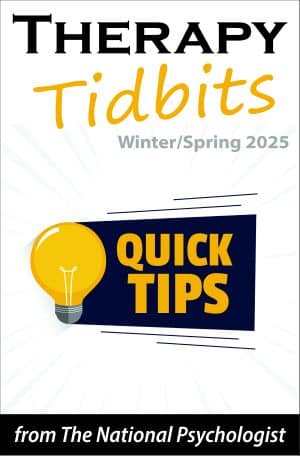- ADHD
- Adults
- Alternative Medicine
- Alzheimers & Aging
- Animal-Assisted Therapy
- Autism
- Behavior Therapy
- Child & Adolescent
- Closeout
- Communication
- Couples-Family-Parenting
- Cultural Diversity
- Depression & Anxiety
- Domestic Violence
- Ethics & Risk Management
- Gender Identity
- HIV-AIDS
- Human Trafficking
- Laws & Rules
- Medical Errors
- Mindfulness & Yoga
- Miscellaneous
- National Psychologist
- Nutrition & Fitness
- Pain Management
- Psychotherapy
- Sexuality
- Substance Abuse
- Suicide
- Supervision
- Trauma & PTSD
Psychotherapy Myths & Faulty Beliefs
Ofer Zur, PhD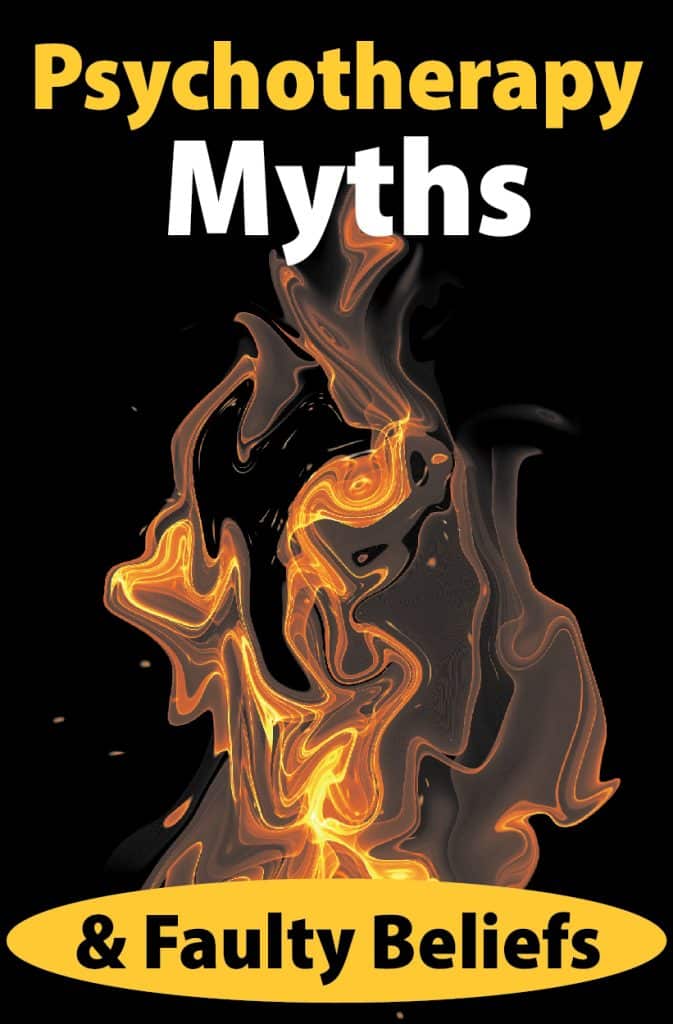
$14.00
 Introductory
Introductory
 Video
Video
Course Abstract
Psychotherapy Myths & Faulty Beliefs is a 1-hour video continuing education (CE) course that explores some of the key beliefs concerning standard of care and ethics in psychotherapy. Dr. Zur’s critical approach will help participants redefine best practices as they explore the following myths:
- The Inherent ‘Power Differential’
- Physical Touch in Psychotherapy is Unethical and Leads to Sex
- The DSM is a Scientifically Valid and Reliable Document
- Dual Relationships in Counseling are Always Unethical
- “Don’t Blame the Victim” (Victims are Always 100% Innocent?)
- Risk Management is an Inherent Part of the Standard of Care
- Malpractice Lawsuits Against Psychotherapists and Counselors are Common
- As the Slippery-Slope Argument Predicts, Boundary Crossings Inevitably Lead to Boundary Violations
- It is Never, Ever Ethical, Legal, or OK for a Psychotherapist to Be Naked with a Client
- ‘Distance Care’ is New
Dr. Zur illuminates these complex issues using clinical examples and case studies. The supplemental handout offers a quick review of each of the ten myths and provides links for further reading. Please note: The licensee is not required to complete this further reading to complete the test or receive CE credit. All information needed to complete the CE test may be found in the video presentation and accompanying PDF copy of Dr. Zur’s PowerPoint Slide Show.
Course #11-44 | 2022 | 1-hour video | 28 page handout | 10 posttest questions
Learning Objectives
- Identify two complexities involved in therapist-client power relationships
- Explain two key points in the debate on whether the Diagnostic and Statistical Manual (DSM) is a scientifically based document
- Differentiate between risk management principles and the standard of care
- Clarify four ethical concerns with dual or multiple relationships
Course Directions
This video course provides instant access to the course video, course handout, and the CE test. The CE test is open book (you can print the test to mark your answers on it while watching the course video).
Successful completion of this course involves passing an online test (80% required, 3 chances to take) and we ask that you also complete a brief course evaluation.
About the Author(s)
Ofer Zur, PhD : Find out More
Disclosure
Financial: Receives author compensation from Professional Development Resources, Inc.
Nonfinancial: No relevant nonfinancial relationships exist.
CE Information
Counseling
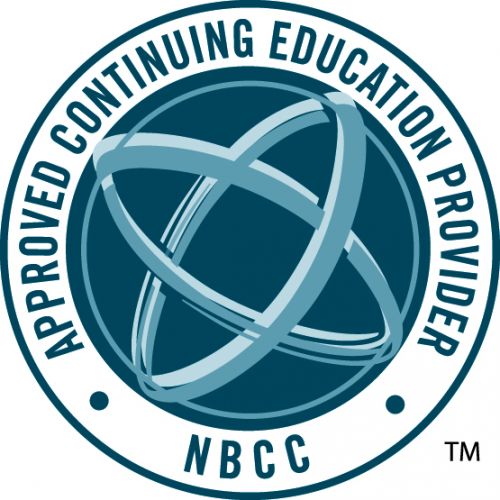
Professional Development Resources (PDR) has been approved by the National Board for Certified Counselors (NBCC) as an Approved Continuing Education Provider, ACEP No. 5590. Programs that do not qualify for NBCC credit are clearly identified. PDR is solely responsible for all aspects of the programs.
Professional Development Resources is CE Broker compliant (#50-1635 - all courses are reported within two business days of completion). Professional Development Resources, Inc. is recognized by the New York State Education Department’s State Board for Mental Health Practitioners as an approved provider of continuing education for licensed mental health counselors (#MHC-0135 - Note: New York counselors will receive 1 continuing education credits for completing this self-study course).
Marriage and Family Therapy
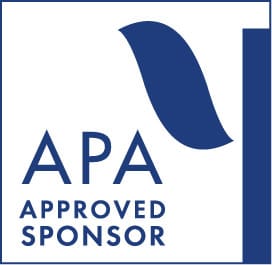
Professional Development Resources is approved by the American Psychological Association (APA) to sponsor continuing education for psychologists. Professional Development Resources maintains responsibility for this program and its content. Professional Development Resources is also approved by the National Board of Certified Counselors (NBCC ACEP #5590); the Association of Social Work Boards (ASWB #1046, ACE Program); the New York State Education Department's State Board for Mental Health Practitioners as an approved provider of continuing education for licensed marriage and family therapists (#MFT-0100 - Note: New York MFTs will receive 1 continuing education credit(s) for completing this self-study course); the Texas Board of Examiners of Marriage and Family Therapists (#114); and is CE Broker compliant (#50-1635 - all courses are reported within two business days of completion).
Psychology

Professional Development Resources is approved by the American Psychological Association (APA) to sponsor continuing education for psychologists. Professional Development Resources maintains responsibility for this program and its content.
Professional Development Resources is CE Broker compliant (#50-1635 - all courses are reported within two business days of completion). Professional Development Resources, Inc. is recognized by the New York State Education Department’s State Board for Psychology as an approved provider of continuing education for licensed psychologists (#PSY-0145).
School Psychology

Professional Development Resources is approved by the American Psychological Association (APA) to sponsor continuing education for psychologists. Professional Development Resources maintains responsibility for this program and its content.
Professional Development Resources is CE Broker compliant (#50-1635 - all courses are reported within two business days of completion). Professional Development Resources, Inc. is recognized by the New York State Education Department’s State Board for Psychology as an approved provider of continuing education for licensed psychologists (#PSY-0145).
Social Work
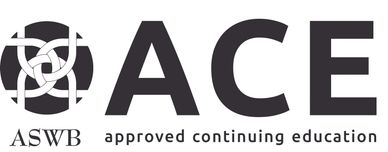
Professional Development Resources, #1046, is approved as an ACE provider to offer social work continuing education by the Association of Social Work Boards (ASWB) Approved Continuing Education (ACE) program. Regulatory boards are the final authority on courses accepted for continuing education credit. ACE provider approval period: 6/12/2022 - 6/12/2025. Social workers completing this course receive 1 ethics continuing education credits.
Professional Development Resources is CE Broker compliant (#50-1635 - all courses are reported within two business days of completion). Professional Development Resources, Inc. is recognized by the New York State Education Department's State Board for Social Work as an approved provider of continuing education for licensed social workers (#SW-0664 - Note: New York social workers will receive 1 continuing education credit(s) for completing this self-study course). Professional Development Resources is also approved by the Texas State Board of Social Worker Examiners (#5678).
Customer Testimonials
I enjoyed the mature approach to understanding context and options suitable to the patient’s outcomes.
Refreshing! Most ethics/risk management courses are so paranoia-inducing that they reduce standard of care. Thank you!
I don't have any suggestions. Dr. Zur was extremely knowledgeable and interesting and made me think about aspects of practice that I haven't thought about for a while.
This was quite informative. Love the presenter!
Dr. Zur's presentation was different than I expected. Yet, he thinks deeply about the issues and concerns involved in psychotherapy, especially regarding ethics and risk management.
More Testimonials
I greatly enjoyed this engaging presentation that challenged some of the more traditional black-and-white ways of thinking about ethics.
i loved this video. Presenter was honest and direct. I agree that focusing on being politically correct is not the same as being ethical or even effective. He validated my beliefs. Common sense & and concern for a client is more important than political correctness. Thank you - I enjoyed this!
Thank you. This was thought provoking.
I appreciate Dr. Zur's common sense approach to ethical dilemmas for the psychologist.
This is a very good course that may need to be updated a bit for 2023, as it pertains to tele-mental health.
Video was fun to watch and listen to. Thank you, Dr. Zur!
Thank you for this unique presentation of the importance of context in understanding the mythology of therapeutic practice!
Great video lecture. I really enjoyed that it took real examples and was not the SAME lecture that I've had for years and years. Very thought provoking -- even discussing being "naked" at a local gym! Very infomrative and thought provoking. Well done.
Very thought-provoking and fascinating.
Thank you for this course. Dr. Zur offered understandings that pierced myths and helped reveal realities that are often clouded or outright hidden.
One of the best 1-hour courses I've taken. Dr. Zur is down to earth, real world, yet professional and reasoned. Excellent course.
I appreciate this short, but thought provoking questions and discussion. This is my first time attending Dr. Zur's materials, but I will return.
Very thought provoking!
I appreciate the vast amount presented and I was able to learn in a short amount of time. ~ Thank you!~
Glad to be introduced to Dr Zur, who has a very interesting life story.
Thank you. I love Dr. Zur's perspective and wisdom.


